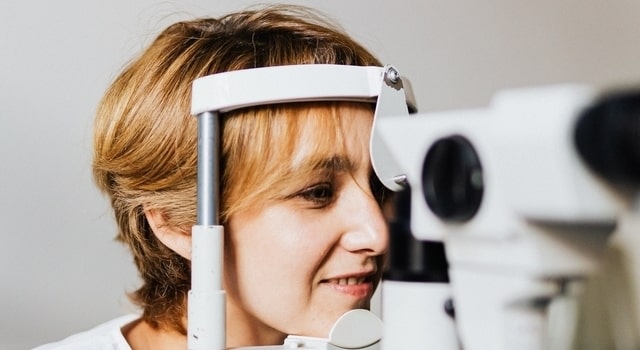Did you know that regular eye exams are not just about updating prescriptions for glasses or contact lenses but that they could prevent you from landing up in the emergency room?
In this blog post, we highlight the importance of regular eye exams and how they can detect early signs of eye diseases that, if left untreated, could lead to severe emergencies. Bay Bloor Optometry, serving Toronto, is committed to providing comprehensive eye care and early detection to ensure clear vision and avert potential eye emergencies. Don't wait until it's too late — schedule an appointment with us today for expert eye care.
The Importance of Regular Eye Exams
Beyond helping to correct our vision, regular eye exams provide crucial insights into the health of our eyes. While vision changes may occur gradually, often without obvious warning signs, eye exams can detect issues early, preventing potential vision loss and eye-related emergencies.
Early Detection of Eye Diseases
Eye diseases can often develop silently, causing irreparable damage before any noticeable symptoms appear. Regular eye exams allow eye care professionals to spot early signs of conditions such as glaucoma, macular degeneration, diabetic retinopathy, and cataracts, among others. Detecting these problems early on enables timely treatment, preventing further progression and preserving precious vision.
Glaucoma, for instance, is a group of eye diseases that can damage the optic nerve and lead to irreversible vision loss. It often progresses unnoticed and may not cause visible symptoms until significant damage has occurred. Regular eye exams can help identify early signs of glaucoma, allowing for timely treatment to preserve vision.
Macular degeneration affects the macula, a small but critical part of the retina responsible for central vision. It can cause a gradual loss of central vision, making it difficult to read, drive, or recognize faces. Early detection through regular eye exams can help implement strategies to slow its progression and preserve vision.
Diabetic retinopathy is a complication of diabetes that affects the blood vessels in the retina. Left untreated, it can cause severe vision loss. Regular eye exams are particularly crucial for individuals with diabetes, as they allow for the early detection of diabetic retinopathy and continuous management to prevent vision loss.
How Often Should I Get an Eye Exam?
According to the Canadian Association of Optometrists (CAO), the recommended frequency of eye exams varies depending on your age and individual risk factors.
- Children and toddlers (birth to 24 months) should have their first eye exam between 6 and 9 months.
- Preschool children (2 to 5 years) should have at least one eye exam between the ages of 2 and 5.
- School-age children (6 to 19 years) should have an eye exam annually.
- Adults (20 to 64 years) should have an eye exam every 2 to 3 years.
- Adults (65 years or older) should have an eye exam annually.
However, if you have any risk factors for eye disease, such as diabetes, high blood pressure, or a family history of eye problems, you may need more frequent eye exams. Our expert team at Bay Bloor Optometry in Toronto can help you determine the best frequency of eye exams for you.
How to Protect Your Vision Between Eye Exams
In addition to regular eye exams, these are several proactive measures you can take to maintain good eye health:
Protect Your Eyes from UV Rays
Wear sunglasses that block 100% of UV rays outdoors to reduce the risk of cataracts and other eye conditions caused by exposure to sunlight.
Maintain a Healthy Diet
Ensure your diet is rich in fruits and vegetables, particularly those high in antioxidants like vitamin C (oranges, lemons, grapefruits, broccoli, tomatoes, pineapples, etc.) and vitamin E (almonds, hazelnuts., olive oil, spinach, fatty fish like trout and salmon, etc.). These rich vitamin sources contribute to optimal eye health.
Manage Chronic Conditions
If you have diabetes or hypertension, work with your healthcare team to manage them effectively, as they can impact your eye health.
Give Your Eyes a Break
If you spend extended periods staring at digital screens, follow the 20-20-20 rule: take a 20-second break every 20 minutes and focus on something at least 20 feet away.
Schedule Your Eye Exam in Toronto Today!
Bay Bloor Optometry, serving Toronto, is dedicated to providing comprehensive eye exams and personalized eye care to ensure clear vision and optimal eye health. Don't wait for an emergency — schedule an appointment today and take proactive steps to safeguard your sight.

